Deciding what to seal butcher block countertops with is crucial for both protecting the wood and maintaining its natural beauty. Butcher block countertops, typically made from hardwoods like maple, oak, or cherry, offer a warm and inviting aesthetic to kitchens and are favored for their durability and versatility. Here are some options for sealing butcher block countertops:
Mineral Oil: Mineral oil is a popular choice for sealing butcher block countertops due to its affordability and ease of application. It helps to moisturize and protect the wood from drying out, preventing cracks and warping. Mineral oil also enhances the natural color and grain of the wood, giving it a rich, lustrous finish. Regular applications of mineral oil are necessary to maintain the protective barrier on the surface of the countertop.
Beeswax: Beeswax is another natural option for sealing butcher block countertops. It creates a protective barrier on the surface of the wood, repelling water and preventing stains. Beeswax also adds a subtle sheen to the countertop and can help to fill in small scratches or imperfections. However, beeswax may need to be reapplied more frequently than other sealants to maintain its effectiveness.
Butcher Block Conditioner: Many specialty butcher block conditioners are available on the market, which typically contain a combination of mineral oil and beeswax. These products are specifically formulated to nourish and protect butcher block countertops, providing a durable and long-lasting seal. Butcher block conditioner is easy to apply and can help to maintain the natural beauty of the wood.
Tung Oil: Tung oil is a natural drying oil that penetrates deep into the wood, creating a strong and waterproof seal. It enhances the natural color and grain of the wood while providing excellent protection against moisture, stains, and heat. Tung oil is more durable than mineral oil and may require less frequent reapplication. However, it can take longer to dry and may have a stronger odor compared to other sealants.

Polyurethane: Polyurethane is a synthetic sealant that forms a durable and waterproof barrier on the surface of butcher block countertops. It provides excellent protection against water, stains, and scratches, making it ideal for high-traffic areas like kitchens. Polyurethane is available in both water-based and oil-based formulas, with water-based options being more environmentally friendly and less prone to yellowing over time.
Waterlox: Waterlox is a tung oil-based sealer that combines the benefits of tung oil with the durability of polyurethane. It penetrates deep into the wood, providing long-lasting protection against moisture, stains, and heat. Waterlox is easy to apply and dries to a satin finish, enhancing the natural beauty of the wood. It is suitable for both interior and exterior use and can be used on a variety of wood surfaces, including butcher block countertops.
Walnut Oil: Walnut oil is a natural oil that can be used to seal butcher block countertops. It penetrates deep into the wood, nourishing and protecting it from moisture and stains. Walnut oil is food-safe and environmentally friendly, making it an excellent choice for countertops used for food preparation. However, walnut oil may need to be reapplied more frequently than other sealants to maintain its effectiveness.
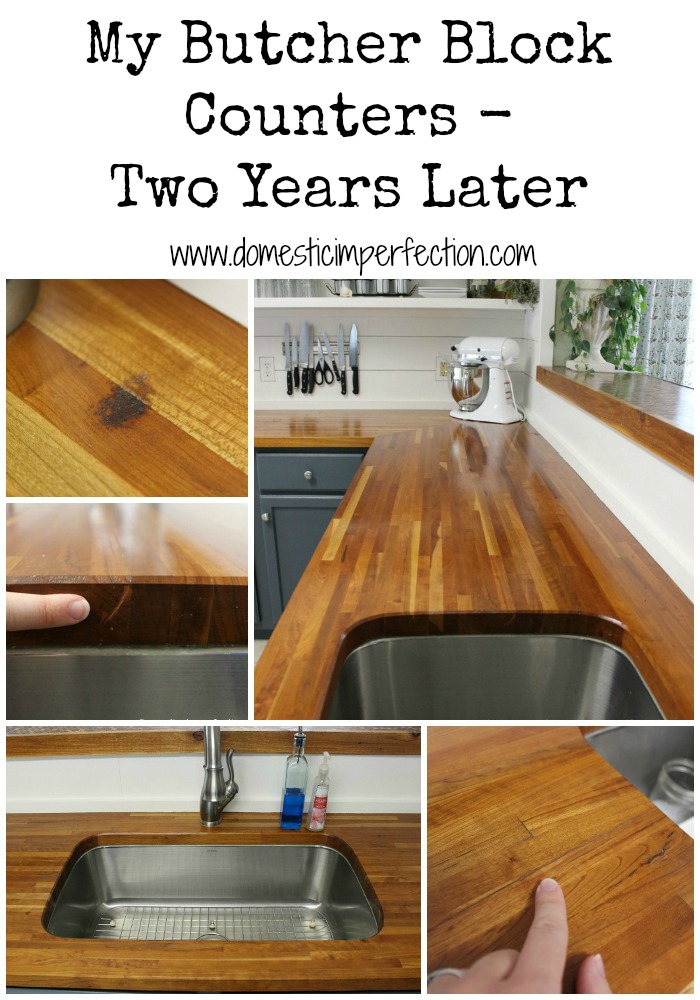
Food-Safe Sealants: When choosing a sealant for butcher block countertops, it’s essential to select a product that is food-safe and non-toxic. Look for sealants specifically labeled as safe for use on surfaces that come into contact with food. This ensures that the sealant will not leach harmful chemicals into your food or affect its taste or safety.
UV Protection: If your butcher block countertops are exposed to direct sunlight, consider using a sealant with UV protection to prevent the wood from fading or discoloring over time. UV-resistant sealants help to maintain the natural color and appearance of the wood, ensuring that your countertops look beautiful for years to come.
Ease of Maintenance: Consider the ease of maintenance when choosing a sealant for butcher block countertops. Some sealants may require more frequent reapplication or special cleaning products, while others are more low-maintenance. Choose a sealant that fits your lifestyle and maintenance preferences to ensure that your countertops remain looking their best.
Common Mistakes to Avoid:
Not Sealing Properly: One common mistake is not sealing butcher block countertops properly or skipping the sealing process altogether. This can leave the wood vulnerable to damage from moisture, stains, and heat, reducing its lifespan and aesthetic appeal. Be sure to follow the manufacturer’s instructions for sealing your countertops and reapply the sealant regularly as needed.
Using the Wrong Sealant: Using the wrong type of sealant for butcher block countertops can lead to issues like discoloration, peeling, or a sticky residue. It’s essential to choose a sealant specifically formulated for use on wood surfaces and to consider factors like durability, food safety, and ease of maintenance when making your selection.
Neglecting Maintenance: Another common mistake is neglecting to maintain butcher block countertops properly after sealing. Regular cleaning and reapplication of sealant are necessary to keep the wood protected and looking its best. Avoid using harsh cleaners or abrasive scrubbers, as these can damage the sealant and the wood surface.
Not Allowing Proper Drying Time: Some sealants require adequate drying time between coats or before use. Failing to allow the sealant to dry properly can result in a sticky or tacky finish, which can attract dirt and debris and compromise the effectiveness of the sealant. Follow the manufacturer’s recommendations for drying time to ensure optimal results.
Overlooking Environmental Factors: Environmental factors like humidity, temperature, and sunlight exposure can affect the performance of sealants on butcher block countertops. Be mindful of these factors when choosing a sealant and consider using additional measures like UV protection or humidity control to protect your countertops from damage.
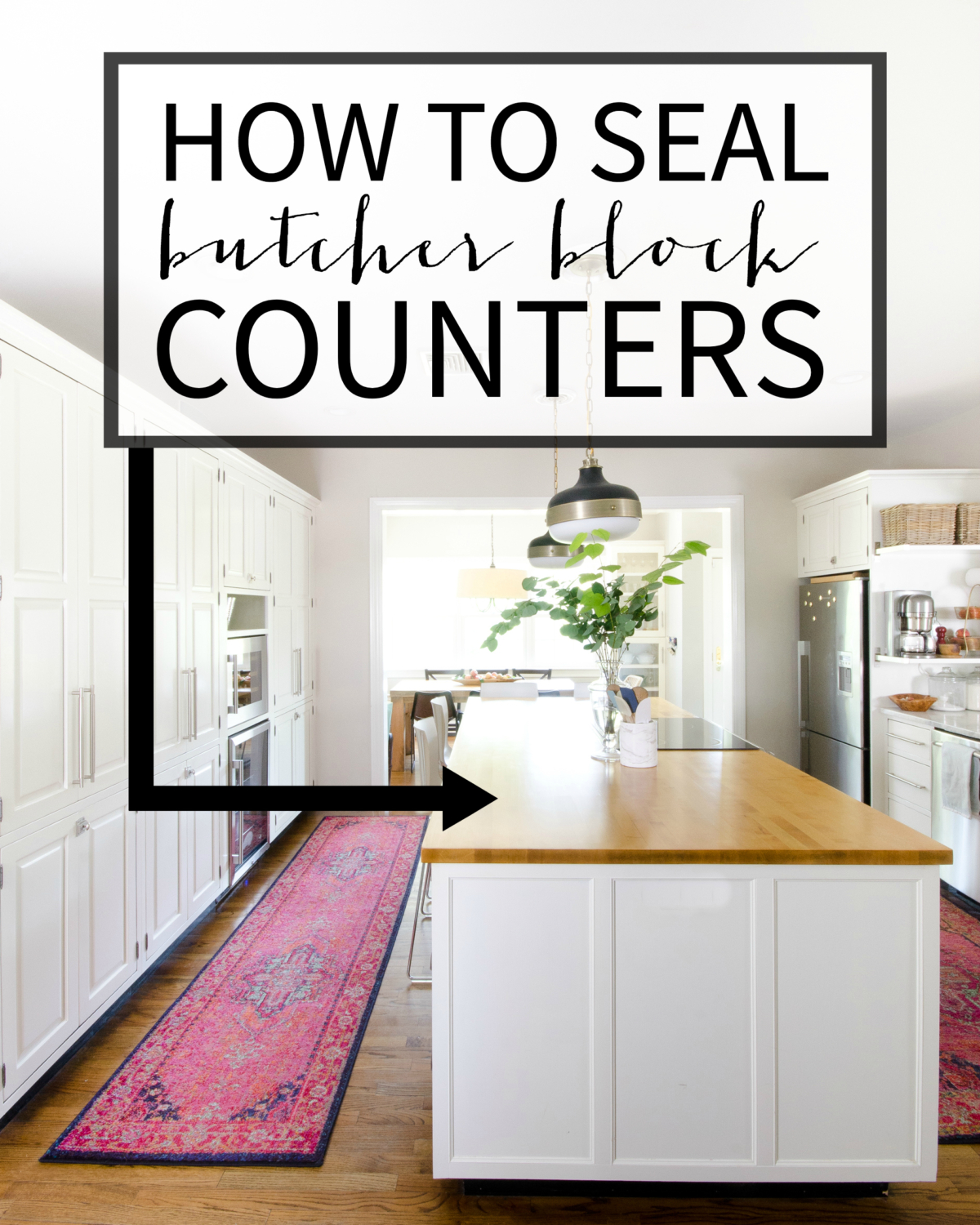
How often should I seal my butcher block countertops?
The frequency of sealing butcher block countertops depends on factors like usage, exposure to moisture, and the type of sealant used. As a general rule, it’s recommended to reapply sealant every 6 to 12 months or as needed to maintain a protective barrier on the wood surface.
Can I use olive oil to seal butcher block countertops?
While olive oil can be used to condition butcher block countertops and enhance their appearance, it is not a suitable sealant on its own. Olive oil does not provide a durable or waterproof barrier and may go rancid over time, leading to unpleasant odors and potential bacterial growth.
Do I need to sand my butcher block countertops before sealing?
Sanding butcher block countertops before sealing helps to smooth out any imperfections in the wood surface and prepare it for sealing. It also removes any existing sealant or finish, allowing the new sealant to penetrate the wood more effectively. Be sure to sand the countertops evenly and remove any dust before applying the sealant.
Can I use butcher block countertops for food preparation?
Yes, butcher block countertops are safe for use in food preparation areas and are commonly used for cutting, chopping, and cooking. However, it’s essential to maintain a proper sealant on the countertops to protect the wood from moisture, stains, and bacterial growth. Regular cleaning and maintenance are also necessary to ensure food safety.
How do I clean and maintain sealed butcher block countertops?
Sealed butcher block countertops can be cleaned with mild soap and water or a gentle household cleaner. Avoid using harsh cleaners or abrasive scrubbers, as these can damage the sealant and the wood surface. It’s also essential to reapply sealant regularly to maintain a protective barrier on the wood and prevent damage from moisture and stains.
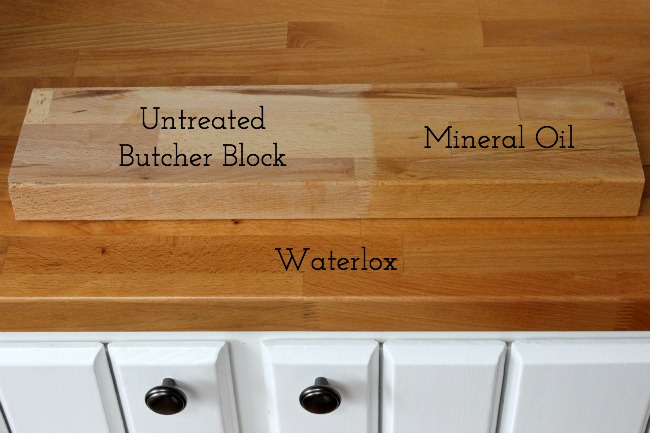
How to Seal Butcher Block Counters – The Chronicles of Home
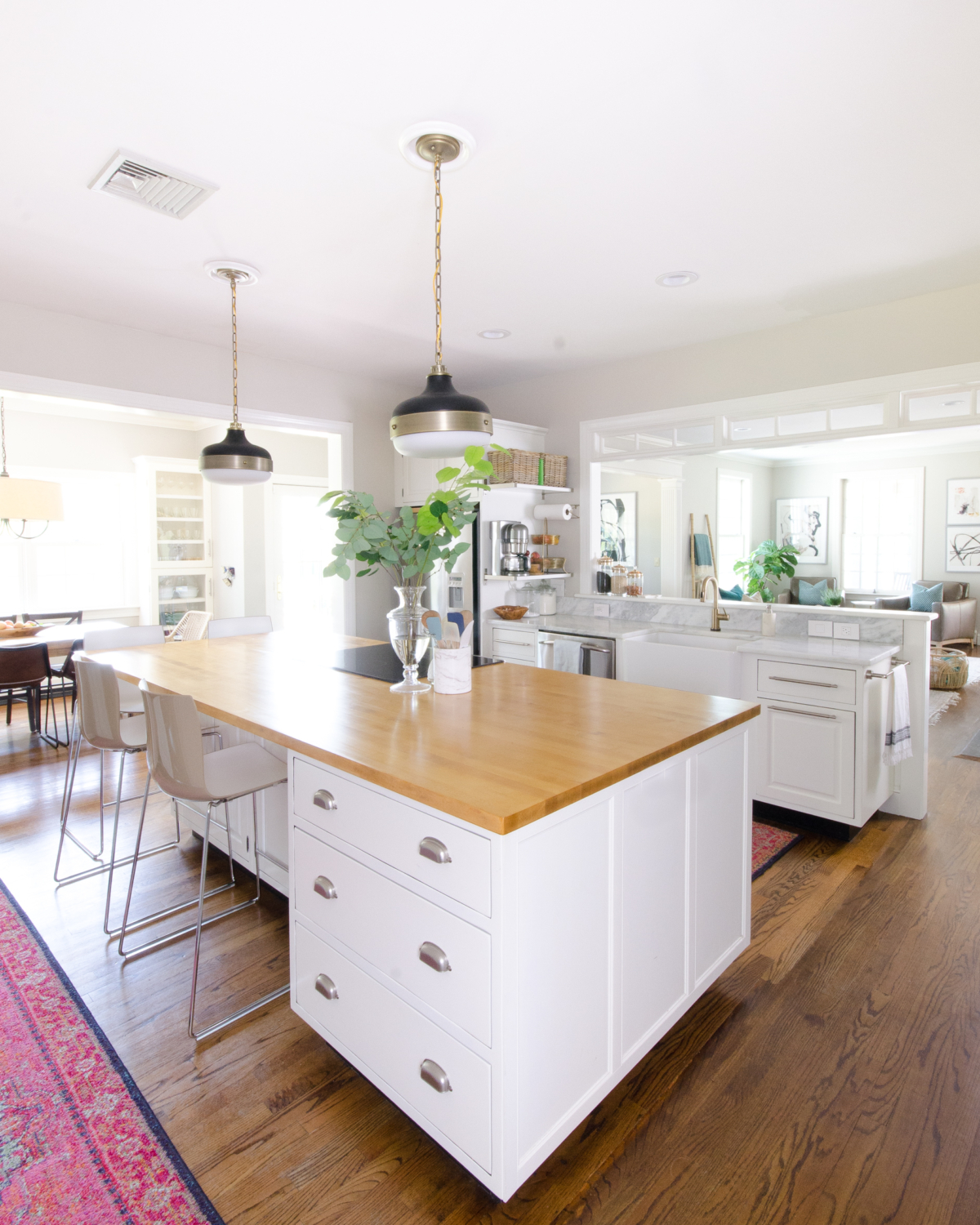
How We Refinished our Butcher block Countertop – Chris Loves Julia

how to seal butcher block countertops

SEALING BUTCHER BLOCK COUNTERTOPS –
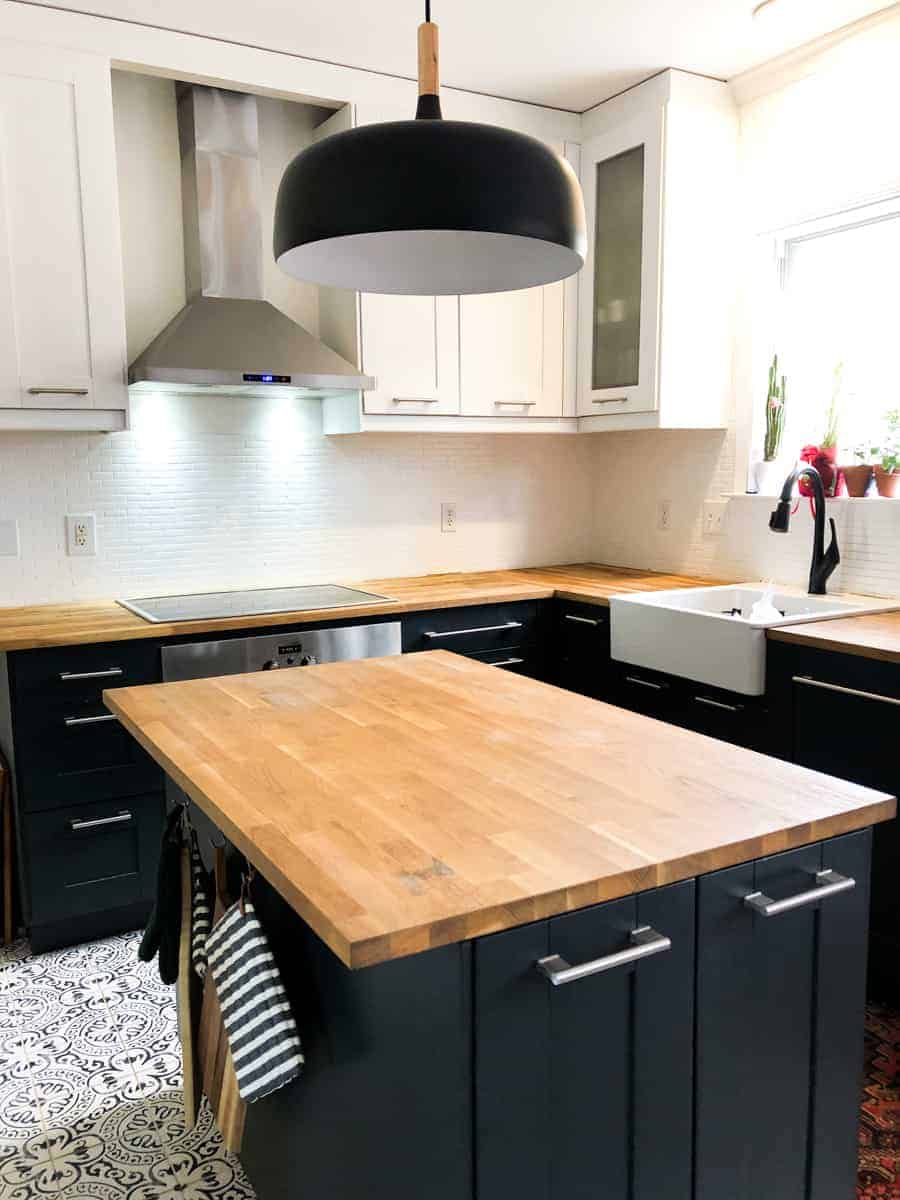
How to seal butcher block countertops with food safe treatment
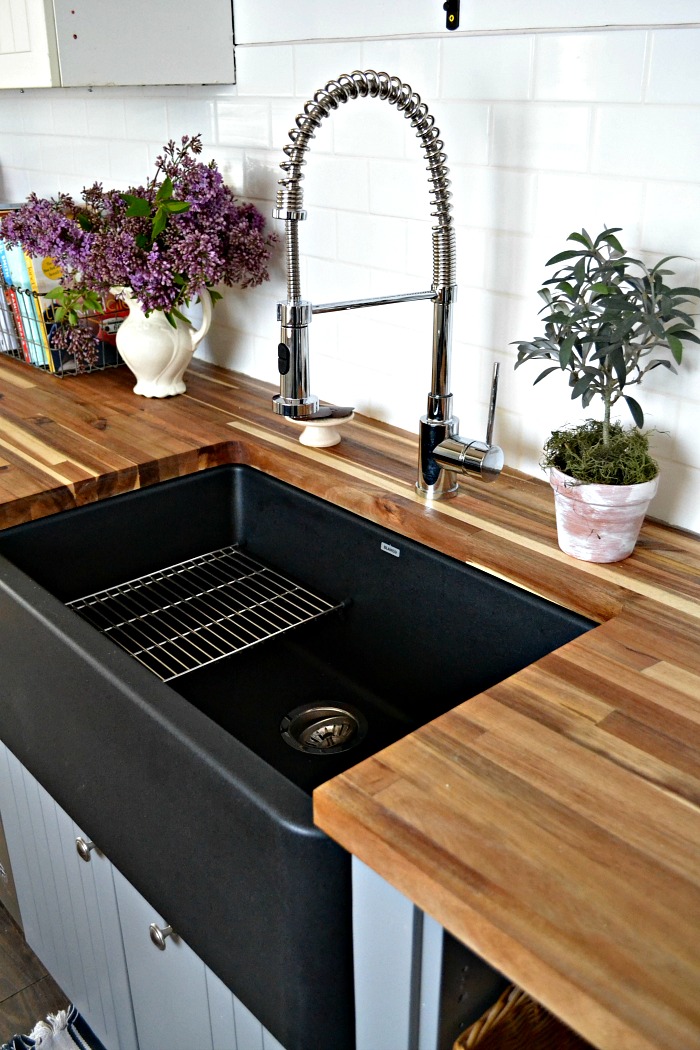
How to Finish and Install Butcher Block Countertop – Cherished Bliss

Related articles:
- Island Butcher Block Countertops
- How To Care For Butcher Block Countertops
- DIY Butcher Block Countertops
- Farmhouse Butcher Block Countertops
- Kitchen Designs With Butcher Block Countertops
- Sanding Butcher Block Countertops
- Butcher Block Countertops With White Cabinets
- Build Your Own Butcher Block Countertop
- Butcher Block Countertop With Tile Backsplash
- How To Stain Butcher Block Countertops